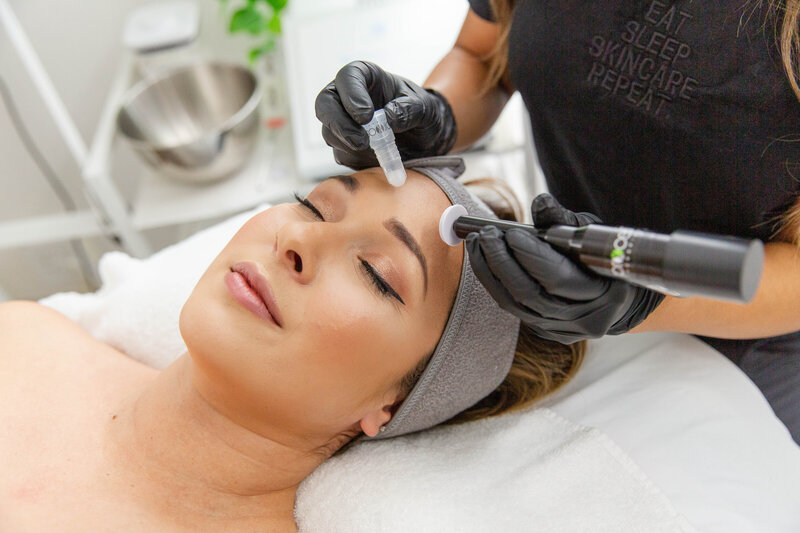Health problems go beyond physical discomfort. They affect the mental well-being of people. While the primary focus is on treating physical ailments, understanding the mental impact these issues impose is essential. This blog focuses on how the effects of acne, hair loss, and the incidence of mental health problems interplay with mental health overall.
Mental Health and Hair Loss
Loss of hair can be a stressful experience for a lot of people, which can affect confidence and self-esteem. The psychological effect of losing hair is a major one, which can lead to depression and anxiety. The people who suffer from hair loss might be unable to control their appearance. Over their appearance. This could lead to social withdrawal and a loss of level of living standards.
The high level of satisfaction associated with hair transplant procedures, which stands around 90% as per Gitnux which highlights the importance of taking care to address this problem. The satisfaction gained from a successful hair transplant can greatly boost self-esteem as well as mental well-being.
This study highlights the positive effects of successful treatments for mental well-being. For many, the process of gaining hair can result in confidence and self-worth. Confidence, easing the psychological burden that hair loss is often the result of.
The Psychological Cost of Acne
Acne affects over 85 percent of the population of the world. It’s not only a skin problem;it’ss also a major mental health problem. Acne’s visibility can trigger feelings of shame, embarrassment, and anxiety over social interactions. Young adults and adolescents, who suffer the most, are especially susceptible to the mental health impacts of acne. The emphasis that society places on having flawless skin is a major factor in these issues, which can cause a decrease in self-esteem and, in some instances, depression.
The psychological effect of acne goes beyond what is visible on the face. Patients with severe acne can be hesitant to socialize, leading to loneliness and isolation. The constant nature of acne may cause feelings of despair, which can lead to deterioration of mental well-being.
The most effective acne treatments are crucial in improving not just the condition of your skin but also your mental health. The availability of dermatological treatment and treatment can reduce the adverse psychological effects of acne, leading to the health.
Mental Health Disorder Prevalence
Based on Johns Hopkins Medicine, about 25 percent of adults suffer from an identifiable mental health issue each year. This shocking statistic illustrates the wide-ranging nature of mental health disorders that are often associated with other health conditions, like acne and hair loss.
The relationship between physical health problems and mental health is complex and multidirectional. For example, an ongoing physical illness could result in mental health problems, and existing mental health issues may make it more difficult to manage and perceive the effects of physical health issues.
Mental health conditions like anxiety and depression can increase the stress that physical illnesses cause, such as acne and hair loss. A mental health issue can make dealing with physical conditions more difficult, which can lead to an endless cycle of worsening health.
This underscores the need for an integrative approach to health care, which ensures that physical and mental health issues are dealt with in tandem. By recognizing and treating aspects of mental health that are associated with physical illnesses, healthcare professionals can offer more effective and comprehensive treatment.
Getting Help and Overcoming the Stigma
The stigma associated with psychological and physical health concerns is often a barrier to seeking help. It’s crucial to create an environment in which people can discuss their health issues without fear of being judged. A growing awareness of the psychological consequences of illnesses like acne and hair loss will encourage more patients to seek treatment and improve their physical appearance as well as their mental health.
Support groups, counseling, and therapy are great sources for people struggling with mental health issues or physical illnesses. These support groups allow individuals to talk about what they’ve experienced, gain knowledge, and learn strategies for coping. Understanding the interconnectedness between mental and physical health is an essential step towards a holistic and healthy lifestyle.
Conclusion
Hair loss and acne have a significant impact on mental health, leading to depression, anxiety, and social isolation. The high level of satisfaction associated with hair transplants, as well as the increasing incidence of acne, highlights the importance of dealing with these conditions, not just to improve physical health, but also for mental well-being. With around 25% of people suffering from an identifiable mental health issue every year, integrating mental health services in treating physical ailments is crucial. Removing the stigma and encouraging discussions on the issues could lead to improved health outcomes and a better standard of living for many.




